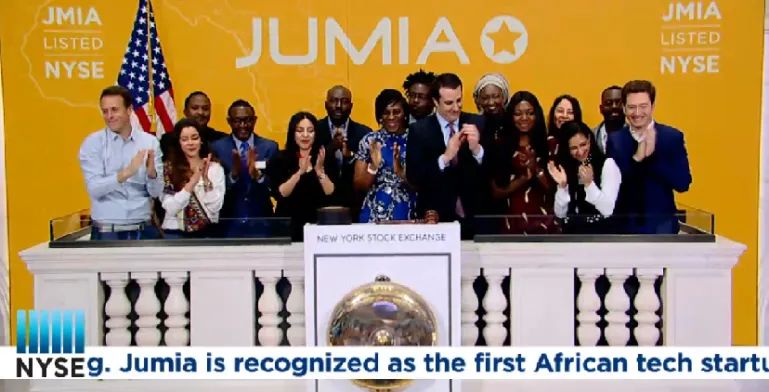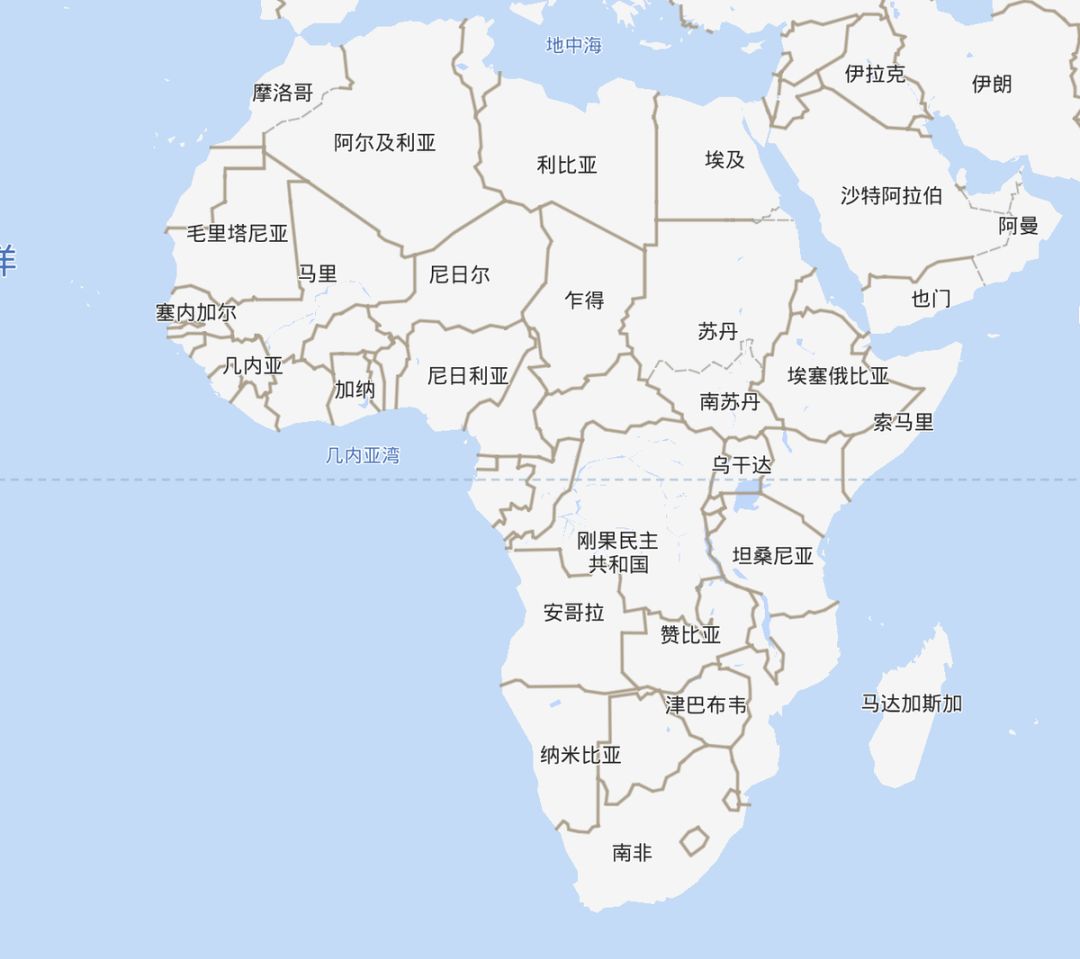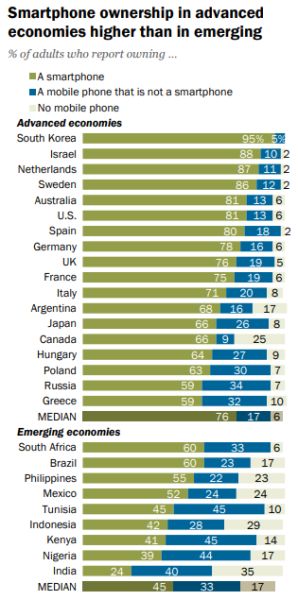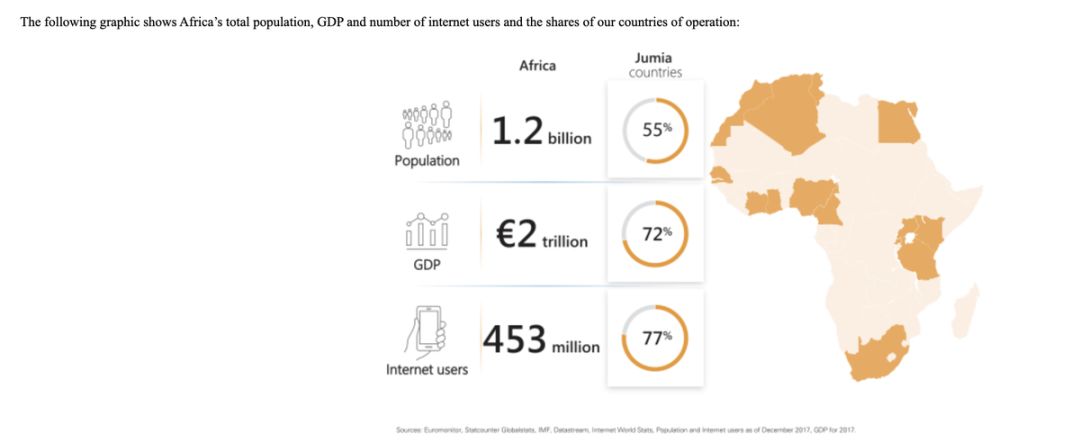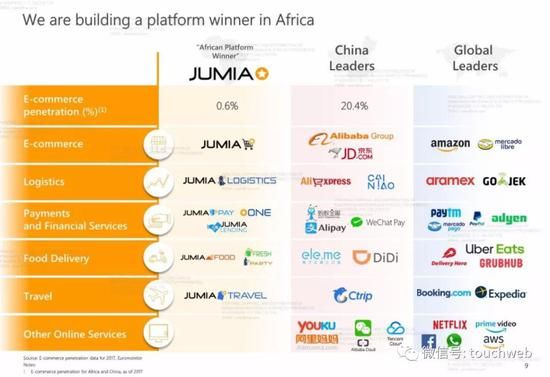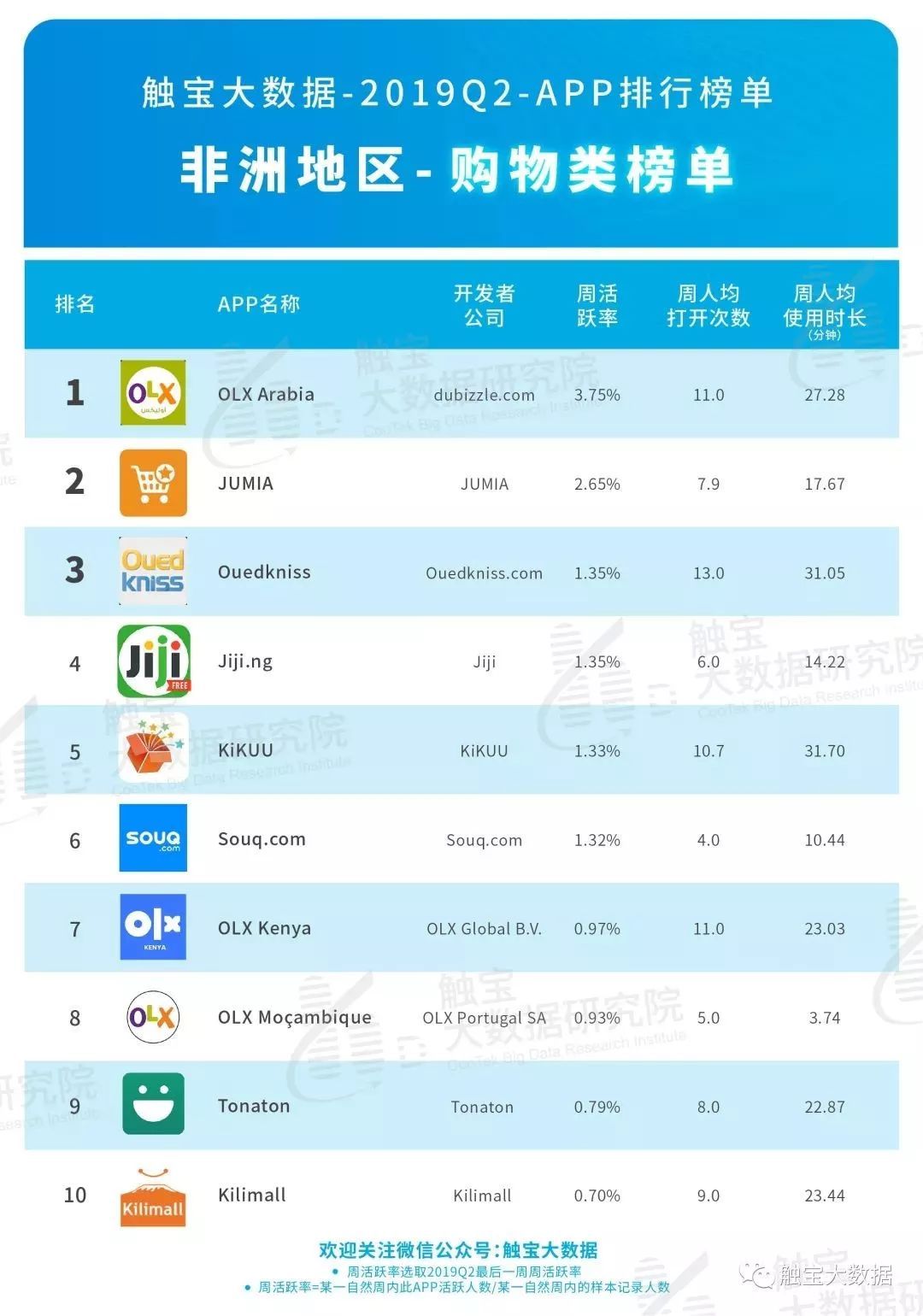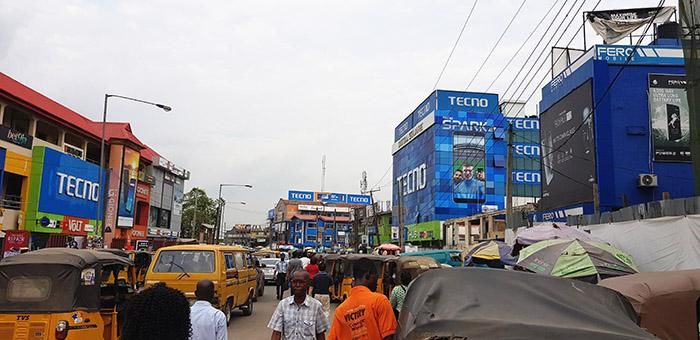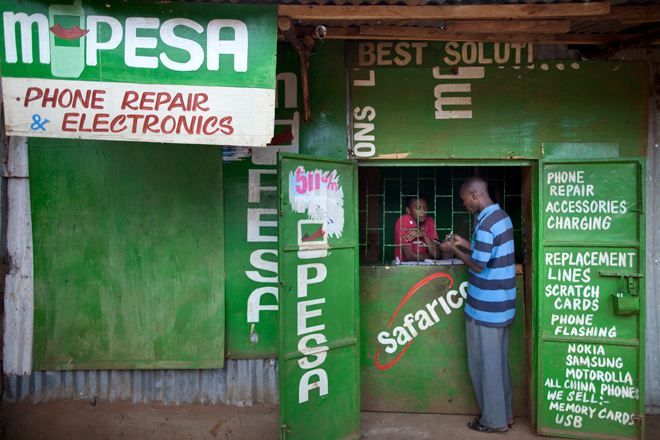“The current African Internet is like the Chinese Internet in 2000.”
Editor’s note: This article is from WeChat public account “Deep-echo” (ID: deep-echo), author Ding Zhiren.
In 2019, the domestic market ushered in an important turning point: the total number of mobile Internet users peaked, the growth dividend officially ended, and the domestic mobile Internet market was transferred to the stock competition stage.
A new stage of development, sailing to the sea has become an important choice for Internet entrepreneurs.
Based on past experience, we have already learned about the diversity and complexity of overseas markets. During the National Day, the team has selected a large number of materials and market front-line cases to introduce Africa, Southeast Asia, Latin America, India, The core trends of the major destinations in the Middle East and the United States help readers explore the competitive differences in different markets and the nature of user needs, and identify opportunities.
This is the 001th article of the Global Nuggets Series.
Core PointsAfrica is a chance to replicate the Chinese miracle and is the last “billion-level blue ocean market” in the world.
For the Chinese team, local localization needs will create a lot of space.
Before entering the African market, issues such as local economic levels, cultural differences, and weak infrastructure need to be addressed.
What do you think of when you mention Africa? Grasslands, animals, primitive tribes, wars, poverty and disease. The impression of Africa seems to always be tied to backwardness, but this perception now needs to be refreshed.
In mid-April this year, African e-commerce giant Jumia was listed on the New York Stock Exchange, raising $216 million. Jumia currently operates in 14 countries in Africa. In addition to e-commerce, Jumia has established local e-commerce, payment platforms and numerous services in Africa, including take-away, classified ads, online travel platforms and more.
This local e-commerce giant, known as the African version of Alibaba, is a microcosm of Africa’s booming Internet industry.
Benefiting increasingly smooth The economic and political environment, the ever-increasing level of infrastructure construction, and the growing penetration of smartphones and the Internet, Africa has become a new continent in the eyes of many venture capitalists, and there is a chance to replicate the Chinese economic miracle. /strong>.
Nuggets Africa has become a new choice for many venture capitalists. So, what kind of market is this? What opportunities does it have? How do we catch it?
Go into a different Africa
In the emerging and special market region of Africa, national stability is seen by many companies and investors as one of the most important factors affecting the outcome of economic and trade activities. It is worth optimistic that
Today, the political and economic situation in Africa is entering a phase of political stability and sustained economic growth.
Ethiopia with a population of over 100 million is expected to achieve an increase of more than 8% in 2018 and 2019. The closed-door country has turned to an open route, and it has also provided business opportunities for foreign investment in the fields of communications and aviation. Kenya has crossed the barriers of domestic political opposition and actively attracted foreign investment in the medical and food industries.
According to the International Monetary Fund
(IMF)
The 2018 African economic data released not long ago, in 2018, Africa’s total GDP is about 2.3 trillion US dollars, the actual GDP growth rate is 3.4%, while the IMF predicts that Africa’s economic growth rate will reach 4% in 2019.
What is this concept? For comparison, the total GDP of China is 90.03 trillion yuan in the same period, and the total GDP of Africa accounts for 17% of China’s total, equivalent to two Shandong provinces.
(7.65 trillion yuan)
The total amount of the economy. If Africa is regarded as a country as a whole, the total GDP is closer to India. India’s total GDP in 2018 is 2.7 trillion US dollars, slightly higher than the overall economic volume of Africa.
View by region, East Africa
(Kenya, Ethiopia, Rwanda, Uganda and Tanzania) The world’s leading growth rate, North Africa (the largest economy Egypt) growth rate, WestNon-(the largest economy in Nigeria) has improved significantly, and South Africa (on behalf of the country South Africa) has stagnated.
Span>Africa map (from Baidu map)
At present, the population of Africa is about 1.256 billion. According to forecasts, it will exceed 1.7 billion in 2030 and more than 2.5 billion in 2050. About 50% of the world’s new population will be contributed by Africa. Due to poor medical conditions and high fertility rates,
The average age of the African population is 19.4 years old, far below the world average age of 30.6 years, and the population structure is very young.
Domestic venture capital based on population base and economic level
The current focus is mainly on Nigeria in West Africa, Kenya in East Africa, Tanzania, Uganda and South Africa.
In the premise that the situation is stabilizing, economic development is steady, and population is growing rapidly, the penetration rate of smartphones and Internet penetration in Africa have steadily increased in recent years.
In 2016, the Pew Research Center mentioned in a report that the penetration rate of smartphones in Africa is far below the global average. At that time, the penetration rate of smartphones in developed countries was 68%; The penetration rate of smartphones in China is 37%; the global median is 43%; and the penetration rate of smartphones in many countries in Africa is less than 20%.
But the situation of low smartphone penetration has gradually improved over the past two or three years.
As of the end of 2018, the Internet penetration rate in Africa was 35%, and the number of Internet users was 460 million, which is comparable to India.
It is expected that the Internet penetration rate in Africa will continue to grow at a high rate in the next five years, and at least 300 million netizens will be added. By then, the size of its netizens will be comparable to that of current Chinese netizens.
The data released by IDC shows that in 2018, the total shipment volume of the African mobile phone market was 215.3 million units, of which, the number of feature phone shipments was 127.1 million units, accounting for 59.0% of the overall market, while smartphones came out. The cargo volume was 88.2 million units, accounting for 41.0% of the overall market. Supported by the three major smartphone markets in the African continent, Nigeria,Driven by strong performance in South Africa and Egypt, the African smartphone market grew by 2.3% in 2018.
The penetration of smartphones into the African market will continue. The African local e-commerce company Jumia predicted in the prospectus submitted in March this year that it is expected that the penetration rate of smartphones will reach 73 by 2022. %.

African Smartphone Permeability Forecast (from Jumia Prospectus)
Although there is still a large gap in the penetration rate of smartphones in Africa compared with countries with developed information industries such as China, the United States, and South Korea, this is precisely the existence of opportunities.
Some national smartphone penetration (from Pew Research Center, 2018)
In the eyes of some Chinese venture capitalists who have conducted field visits to African markets, Africa is the last “billion-level blue ocean market” in the world.
The state of development of major cities in some African countries is similar to the coastal cities of China 15 years ago. Taking this as a coordinate against China, this year is the 21st year of Tencent’s establishment, the 20th year of Alibaba and Ctrip, and the 19th year of Baidu’s establishment. Looking back at China 15 years ago, the market is full of opportunities, so it is not It’s hard to imagine that today’s Africa is full of temptations for adventurers.
African population, GDP, Internet user data (from the Jumia prospectus)
The growth of GDP, the large population base, the large proportion of young people, and the increasing penetration of smartphones have determined that the African mobile phone market and mobile Internet will accelerate development.
In the past two years, the mobile phone market and mobile Internet in Africa have started, and this dividend period will continue for five to ten years.
Localization is a breakthrough point
With the promotion of smartphones, the mobile Internet in Africa will usher in greater development.
Mobile Internet-based social, communications, e-commerce, travel, content, entertainment, finance and other fields have unlimited possibilities.
Jumia was successfully listed in the United States in April this year. It is considered to be an important node for the development of the Internet industry in Africa. For the capital circle, it means that the channels for fundraising, investment, management and exit in the African market have matured. For example, the Jumia IPO is the best proof of the potential of this emerging market in Africa.
Since its launch in 2012, Jumia has been operating in 14 African countries and selling a variety of goods. You can think of Jumia as Alibaba in Africa, with more than 80,000 merchants active on its platform.
In the face of the relatively poor Internet connectivity in Africa and the lack of bank loans to suppliers and consumers, Jumia has built most of its economic infrastructure, including its own payment tool, JumiaPay. During the roadshow, Jumia put its business in one-to-one correspondence with Internet companies in China and the United States to help investors understand their business model.
Jumia Roadshow PPT (Leidi Touch)
Not just Jumia, according to news from inside the NYSE, another home appliance company in Hong Kong, Konga Group, is also preparing an IPO with a market capitalization of about $3.2 billion. Jumia and Konga are representatives of Africa’s booming e-commerce business, and entrepreneurs with a keen sense of smell have already entered the Nuggets.
The Qingliu Capital Research Team once conducted a field trip to Africa and concluded that
Localization of tools APP, content class APP, and scene-based heavy localization operation APP, such as the travel class, life service class, will be the opportunity for the Chinese Internet team.
The reason for this judgment is mainly based on two reasons. First, English is more common in Africa.
But European and American companies are still the logic of unilateral driving of standardized products, lacking the power to localize on the demand side,
At most, the Lite version was developed based on the pain points of African locals’ lack of intelligent computer memory. The overall localization adaptation is poor, and the understanding of African users’ habits and culture is shallow. Secondly, European and American companies are not involved in heavy operation and heavy localization. APP areas with capabilities and heavy bilateral investment, such as content, e-commerce, travel, and local life services.
In addition, although due to the historical reasons of colonization, Africa has a high degree of language and cultural acceptance of European and American manufacturers, but at the same time, the existence of local nationalism has also prompted local users to promote the development of local products. Demand,
For the Chinese team, local localization needs will create a lot of space.
In fact, this judgment is basically consistent with the current market conditions. At present, the products of various European and American companies in the list of African APPs are indeed in the top ten positions of many lists. To have a role to play. But not to be ignored, emerging players are on the rise.
In the Africa second 2019 APP ranking released by TouchPal, in addition to the local platform Jumia and the global platform OLX, the Chinese background Kikuu and Kilimall also entered the top ten.
NonCaizhou 2019Q2 Shopping App List (TouchPal)
Kikuu is a cross-border e-commerce trading platform founded by Hangzhou Jiku Information Technology Co., Ltd. in 2015. It is mainly engaged in B2C business. Kilimall is headquartered in Changsha High-tech Zone and was founded by former Huawei employee Kenya Tao.
In the Chinese technology companies entering the African market, Chuanyin is the most representative company. After focusing on solving the self-time needs of African users and gaining a foothold in the African mobile phone market, the voice has extended its business to the market. Software field.
There are three major mobile phone brands, Itel, Infinix and Tecno. Due to the coverage of their mobile phones in the African market, the content of their development and the application of mobile phone masters and weather forecasting tools – short video app Vskit, The transfer file tool Xender, financial lending Palmcredit, news aggregation Scooper, browser Phoenix, etc. have been widely used.
Among them, Boomplay, a music streaming media developed by Yunyi and NetEase, has become the music app with the highest market share in Africa.
< Span>Sports phone signs on African streets
At the same time, Opera, which was acquired by Kunlun Wanwei in 2016, is based on the browser and information app created by the African market, and the starting point of the online version of Webnovel; the tiktok and music.ly They all have a place in the African market.
Compared with China, Africa is still very backward in terms of infrastructure construction and logistics warehousing capabilities, but it also means that entrepreneurs will have more room to play.
Five Challenges
For many venture capitalists who are looking for gold, the African continent has become a gleaming treasure, but from this huge potential market,It’s not as easy to imagine that it’s not easy to imagine. Before entering the African market, the following issues must be taken seriously.
First, the premise that cannot be ignored is that
The overall level of economic development in Africa is still relatively backward
The economic level will first affect the penetration rate of smart phones. At present, the African market is still dominated by functional machines and low-end smart phones. The growth of this part determines the scale and growth rate of the African market.
The economic level also has a huge impact on users’ spending power on the Internet. How to make money from users who are not well-off in the economy will test the entrepreneurial ability of the entrepreneurs.
Jumia’s financial report shows that its per capita annual consumption is about $159, and the average daily income of local middle-class Africans is only between $10 and $20, and even larger groups cannot even reach this level. Therefore, limited income will limit the user’s spending power, which in turn will affect the revenue of Internet products.
Second, the African market is very fragmented. On the African continent, nearly 1.3 billion people are located in 56 countries, and due to differences in geographical environment, trade policies, economic development, culture, customs, religious beliefs, language, etc.
The African continent cannot be considered as a whole. At present, there are 16 trade zones in Africa, which means that if entrepreneurs want to acquire a larger market, they need to develop corresponding countermeasures for different goals.
In response to cultural and customary differences in different African countries, Jumia has a local CEO in Africa-based countries to meet the needs of local services. For Chinese entrepreneurs, how to understand, respond to local market conditions, and recruit suitable localization teams will determine whether they can truly open up the local market.
Third,The infrastructure and logistics system are weak. Affected by natural and economic factors, major cities in Africa are far apart, while infrastructure construction such as roads and railways has not kept up, so transportation and logistics costs are high. At the same time, due to the differences in trade policies between different countries, the cost of transnational commodity circulation will be higher, which is not conducive to commercial development. This will become the biggest obstacle to the development of the e-commerce industry.
Fourth, payment convenience is low. Locally, bank card penetration is poor, and COD is the main delivery method, which greatly increases the difficulty of distribution.
Kenya Mobile Operator M-Pesa Store
Fifth, because local higher education in Africa is relatively weak, how to recruit qualified employees and managers from the local level will be a problem that must be faced and solved for startups.
There were Chinese entrepreneurs who mentioned that the initial recruitment of local employees would encounter a government’s sudden notice of a holiday, and the locals immediately left the post to get off work, which caused the business to be affected. To this end, the company established a double insurance. The team operation mode, that is, one position is equipped with two manpower to solve the problem of team instability.
Overall, the African market is very different from China, Europe, America, Southeast Asia and other places. Past market acquisition and overseas expansion experience may not be reusable in Africa. Entrepreneurs need to constantly seek in practice. Solution.
Opportunity always coexists with challenges. On the other hand, just as Alibaba has developed Alipay to solve the problem of payment for online transactions, it now spawns a huge ant Jinfu Group, and Africa’s logistics is weak and payment is not Convenience and other status quo just means the existence of opportunities.
Offensive, before local venture capital awakening
“In short, Chinese entrepreneurs in Southeast Asia and India It’s not cheap to salvage. It’s cheaper to salvage in Latin America. Now you can get cheaper and you will have Africa.” In a recent speech, Kunlun Zhou Weihui, Chairman of Wanwei and CEO of Opera Company, put forward the above views.
In 2016, Kunlun Wanwei acquired the famous browser brand Opera Software AS for $575 million. The management of Zhou Yahui made two major changes to Opera, Strong> One is to build a content platform around Opera; The second is to focus on emerging markets such as Africa.
The new strategy has achieved very significant results. In July 2018, Opera was successfully listed on NASDAQ. From the perspective of market value, it can be seen.It is the largest internet company in Africa.
Opera listed Zhou Yahui 锣
With the success of Opera, Zhou Yahui’s firm optimism about the African market is not difficult to understand. The process of Opera’s development in Africa is a classic case of understanding the Internet industry in Africa.
(Click here to review “Deep Resound” about Deep Depth of Opera)
In many public interviews, Zhou Yahui and his management team will mention the current network situation in Africa: the traffic is very expensive, and the performance of mobile phones is backward.
“An app is downloaded halfway, hey, the phone will receive a reminder message, and your traffic has reached the limit this month.” “Some apps are 300M memory, and a 30M app, first To delete an app, many African users often do this.”
But Africa is probably the biggest market compared to emerging markets such as Southeast Asia and South Asia.
Because the local elites in Southeast Asia, South Asia and other places are emerging, they will cause great resistance to foreign capital and entrepreneurs – just as Chinese local venture capitalists have attacked overseas Internet players.
And the current local venture capital in Africa is still not active,According to the investigation of Li Bohai, the co-founder of the non-innovation innovation, the Internet venture capital has really risen only two years; After investigation, it is believed that the African local growth fund vacuum: 210 early Africa in 2018The average financing amount of the enterprise is only 1.59 million US dollars. Apart from the mature M&A projects of private equity funds in the late Europe and the United States, Africa’s capital supply faces a vacuum gap in the growth period of the enterprise, providing opportunities for Chinese capitals who carry funds and internet how to go out.
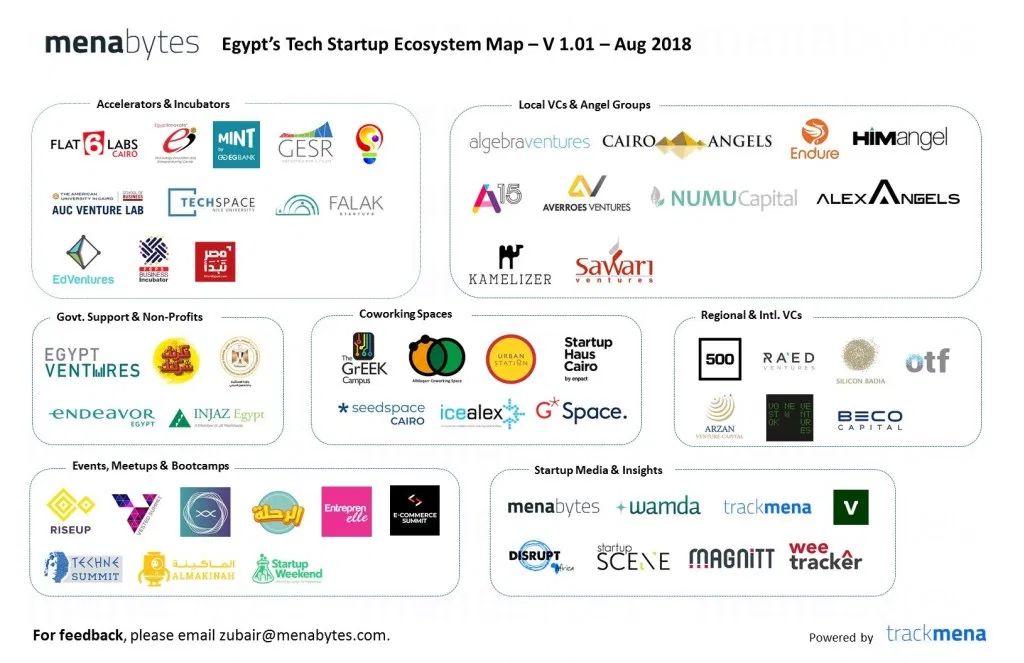
Overview of the Egyptian Venture Capital Industry
Opera, which is aimed at the African network environment and user needs for product improvement, has achieved great success, illustrating the experience and methodology accumulated by the Chinese venture capital team. Products demanded by users can capture the steady growth of the Internet user base in Africa.
In Zhou Yahui’s view, “The current African Internet is like the Chinese Internet in 2000.”
Back to the Internet in China in 2000, BAT has just been established, and the US group, headlines, and Didi have not yet appeared. The rare opportunity in history is already Brewing, nowadays, Africa, like the same time machine, will bring the same attractive opportunity to the public again.
Before the rise of local venture capital, it is now the best time to enter the gold market.
